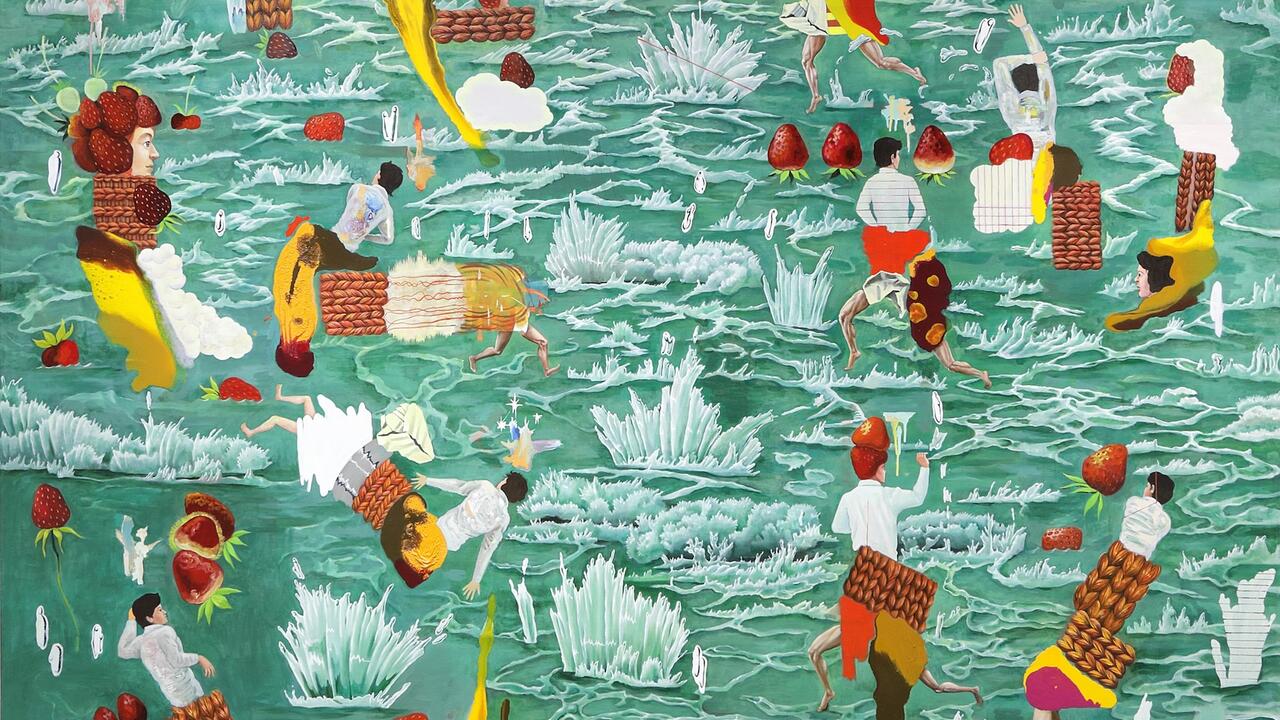Artificial Intelligence
New albums from electronica veterans Autechre and Dubstep producer Benga
New albums from electronica veterans Autechre and Dubstep producer Benga

Autechre made their debut for Warp Records in 1992, contributing a track entitled ‘The Egg’ to the benchmark electronica compilation Artificial Intelligence. This is something that they may not wish to be reminded of however; interviewed recently on the American music website Pitchfork, Autechre’s Rob Brown admitted that he found the duo’s first two albums ‘cheesy’ to listen to now. But compared to ‘The Egg’ (which today could pass for the woozy idylls of Warp label-mates Boards of Canada), their debut and sophomore albums – Incunabula (1993) and Amber (1994) – were positively dystopian. Despite Brown’s slight disdain for his earlier works, made with co-collaborator Sean Booth, both albums are rightly hailed as techno classics, linking the 1980s electro-funk of Jonzun Crew and Cybotron with the elegiac atmospheres of Detroit techno and rhythmic inventions of Aphex Twin. Tellingly, the vitreous synth lines and fractured breakbeats of ‘Teartear’ (from Amber) bear a striking resemblance to the backing track from US R&B star Usher’s current single ‘Dat Girl Right There’ (2008).
Despite Autechre’s forever-forward stance, there are reminders of previous greatness and even traces of their Detroit techno and Chicago acid house roots throughout new album Quaristice, their ninth. ‘Simmm’, for instance, plays the same percussion-as-melody tricks found on their masterwork LP5 (1998), an album that was as integral to shaping the sound of Radiohead’s Kid A (2000) as James Brown’s ‘Funky Drummer’ drum-loop was to Public Enemy’s It Takes A Nation of Millions to Hold us Back (1988).
In a sense, Autechre’s career has followed an unexpectedly similar path to that of 1980s guitar bands Sonic Youth and My Bloody Valentine. Like Autechre, both bands have had to carry the burden of releasing genre-defining albums relatively early on in their careers (Sonic Youth’s Daydream Nation in 1988 and My Bloody Valentine’s mini-LPs Ecstasy and Strawberry Wine in 1987) and were subsequently driven by an urge to constantly reinvent themselves. Furthermore, Autechre have been similarly indentured towards more experimental genres. (They collaborated with original Industrial sound-benders The Hafler Trio on æo3/3hæ in 2005 and invited French electro-acoustic genius Bernard Parmegiani to play at the All Tomorrow’s Parties festival they curated in 2003.) On Quaristice, Autechre merge the later music-as-sound-research approach with their earlier melodious findings with brilliant results.
Before the Artificial Intelligence compilation and the signings of Autechre and Aphex Twin, Warp’s flagship act was LFO. An acronym for Low Frequency Oscillation, the duo of Mark Bell (now a frequent collaborator with Björk) and Gez Varley were the most high profile exponents of the early 1990s northern British sound that came to be known as ‘Bleep’, and were also the only act to go on to release full-length LPs. Like British Hardcore and Rave, this sound has been largely dismissed thanks to one or two novelty hits, notably the two ‘Tricky Disco’ singles released by Warp in 1990 and 1991. However the bass-and-bleep sound of LFO and other northern acts like Unique 3, Rhythmatic and Ital Rockers was not only a major influence on Aphex Twin and Autechre (who remixed Unique 3’s 1989 classic ‘The Theme’ last year) but also the originator of what is now referred to as Dubstep. Journalist Martin Clark noted in a 2001 article on Dubstep’s antecedent ‘dark garage’ in The Face that ‘Sheffield Bleep’ was a primary influence on producers like El-B, Oris Jay and Zed Bias, all of whom were instrumental in shaping the sound of both Grime and Dubstep.

Benga, Diary of an Afro Warrior (2008)
Benga is a veteran of the early noughties’ ‘dark garage’ era and Diary of an Afro Warrior is his 2008 debut album (if you discount the limited CD Newstep, 2006). It carries more of Dubstep’s signatures (snail-paced beats propelled by cavernous basslines) than earlier works but, in places, owes much to the northern bass-and-bleep pioneers. This influence is clearest on crossover hit ‘Night’ – a collaboration with Coki of Digital Mystikz (interestingly the most explicitly reggae-influenced of the Dubstep producers).

Unfortunately this isn’t the whole picture, and, elsewhere on tracks such as ‘B4 The Dual’ and ‘Zero M2’, Benga repeats the sins of so many electronic producers by flirting with ‘jazz moods’ – the result is less 1970s Herbie Hancock and more contemporary library music used for makeover TV. These two mishaps aside, ‘Loose Synths’ and ‘Emotions’ are cerebral techno gems, paradoxically reminiscent of Artificial Intelligence-era Warp artists such as B12, Black Dog or even early Autechre. Hopefully it won’t be the jazz moves that catch on.























